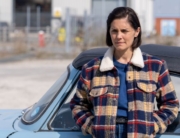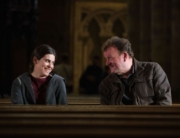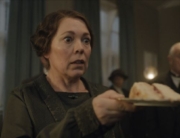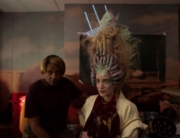This British import is a bit like Animal House reimagined as a tragedy. It begins with a flashback to the days when English dandies dueled and cried, without irony, “Huzzah!” Lord Riot, a young Oxfordian, is caught in flagrante delicto with a professor’s wife, and he pays for this pleasure with his life, but his friends vow to make the “true hedonist” a legend by starting the Riot Club in his honor. The rules of the club are simple: there must be 10 members, and they must be dedicated to drunken shenanigans.
One weakness of the script, adapted by Laura Wade from her stage play Posh, is that there isn’t much at stake for the first half. The only present-day problem of the Riot Club is that it is two members short, and all members face eternal Riot shame if they can’t muster up two lads of the right sort. Enter Alistair (Sam Claflin) and Harry (Douglas Booth), two incoming students who meet each other on moving day. Importantly, Alistair grows to hate Harry, possibly for his politics, possibly from resentment over an act of kindness Harry pays him.
Both become leading candidates for entry to the club, whose current members are a string of semi-interchangeable pretty white boys. The fact that they are indistinguishable becomes a plot point later, when one of the victims of their violence fails to tell one from the other. For indeed, the actions of the Riot Club turn first distasteful and then criminal. Wade seems to be grinding an axe for spoiled rich kids, whose petulance is particularly irritating (we’re told) because of the recent recession.
The filthy rich have long held a fascination, but Wade’s characters have little beyond money—the trappings of which are well displayed here. The third act becomes a question of whether any of the boys will get away with their mischief, and it’s hard to want them to. We’re meant to sympathize with Harry, who tries to make a go of a relationship with Lauren (Holliday Grainger), a fellow student with a working-class background. But nothing grounds their attraction more than the batting of eyes, and the only comment Harry ever manages to say about her is that she is “nice.” There isn’t a single interesting female character: they’re either sexual targets or scolds.
According to the press notes, the Riot Club is based on Oxford’s Bullingdon Club, which apparently carries out much of the same nonsense in real life and counts Prime Minister David Cameron as one of its alums. Perhaps this story is meant to raise awareness and foment an anti-Bullingdon campaign. However, the most stirring drama comes in the form of a restaurant owner who accepts a payoff in exchange for tolerating their peccadilloes. He hates himself for it, and that self-loathing is an unattractive reminder of just how far money can go to cover all evils. The film’s most salient point may be that the Riot Club will always be with us, in a slew of incarnations, smashing things up and leaving others to pick up the pieces.







Leave A Comment